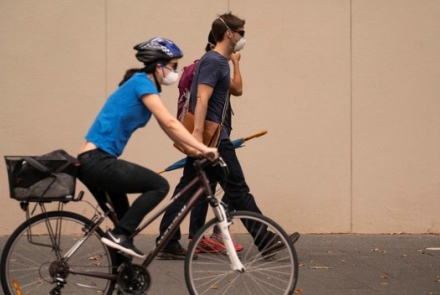
Coronavirus is highly uncertain and global costs could be high
As coronavirus spreads across the globe, new modelling from The Australian National University (ANU) is set to help policymakers respond to the economic costs in the face of a pandemic and as the virus evolves.
The research paper, which models seven scenarios, is the first wide-ranging global economic assessment of the effects of Covid-19.
Four of the seven scenarios in the paper examine the impact of Covid-19 spreading to other countries outside of China, ranging from low to high severity. A seventh scenario examines a global impact where a mild pandemic occurs each year indefinitely.
Even in the paper’s ‘low severity scenario’, the estimated loss to global GDP is $US2.4 trillion, with more than 15 million deaths globally. The costs rise sharply as the level of severity increases, with the highest potential cost to global GDP rising to $US9 trillion.
The authors call for a coordinated policy response to the virus, as well as greater investment in public health in all countries.
The research is by Professor Warwick McKibbin and PhD candidate Roshen Fernando, both of the ANU Crawford School of Public Policy and the ANU Centre of Excellence in Population Ageing Research. It builds on Professor McKibbin’s modelling of the economic impact of 2002–2003 SARS and 2006 flu pandemics.
The findings provide important information about a range of possible economic costs of the disease in 20 countries and four regions, including the OECD and Asia. The paper examines six economic sectors including manufacturing, energy and mining.
In a high-severity scenario, the estimated loss to GDP in Australia in 2020 is $US103 billion, with many deaths.
Under the same scenario, the global economic outlook is dire:
- China’s loss to GDP in 2020 is estimated at $US1.6 trillion.
- In the United States, the figure is $US1.7 trillion.
- Japan’s estimated loss to GDP is $US549 billion.
- In India loss to GDP in 2020 is estimated at $US567 billion.
“Our scenarios show that even a contained outbreak could significantly impact the global economy in the short run,” Professor McKibbin said.
“In the case where Covid-19 develops into a global pandemic, our results suggest that the cost can escalate quickly.
“Even in the best-case scenario of a low-severity impact, the economic fallout is going to be enormous and countries need to work together to limit the potential damage as much as possible.
“This is particularly the case when it comes to the potential loss of life.”
The research aims to provide guidance to policymakers for how best to respond to the economic impact of Covid-19.
“Our study shows the possible costs that can be avoided through global cooperative investment in public health in all countries,” Professor McKibbin said.
“There needs to be vastly more investment in public health and development, especially in the poorest countries.
“All major countries need to participate actively. It is too late to attempt to close borders once the disease has taken hold in many other countries and a global pandemic has started.”
Image: Lannon Harley/ANU
Updated: 15 July 2024/Responsible Officer: Crawford Engagement/Page Contact: CAP Web Team













